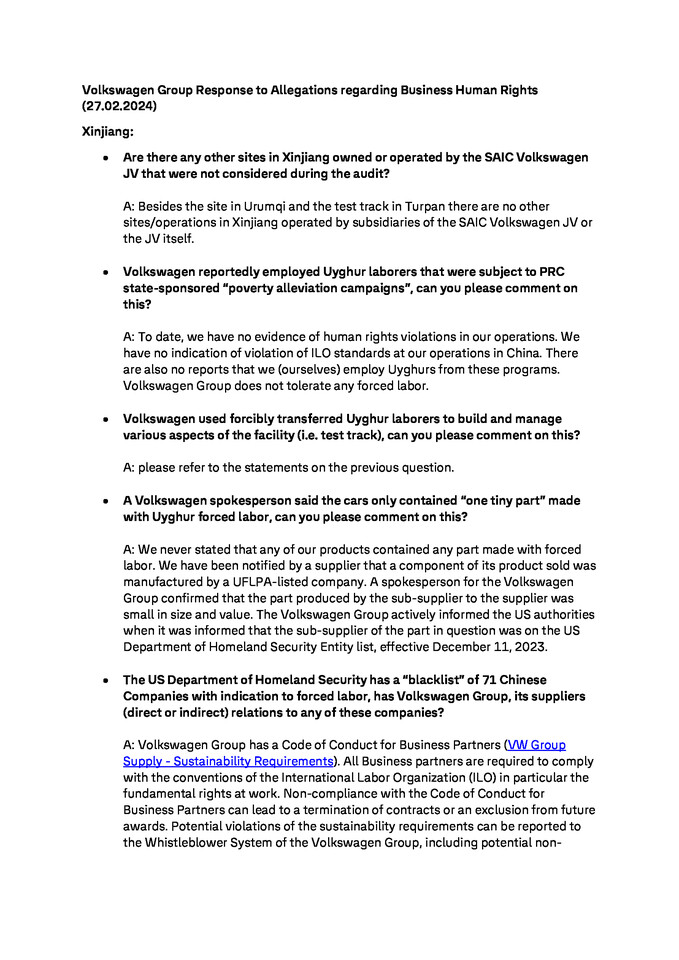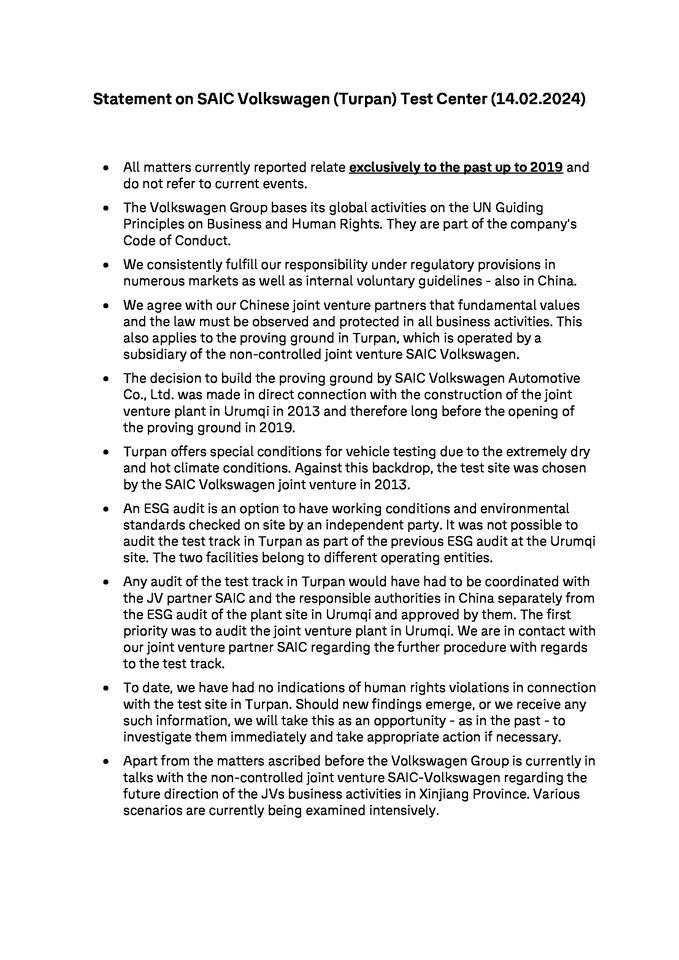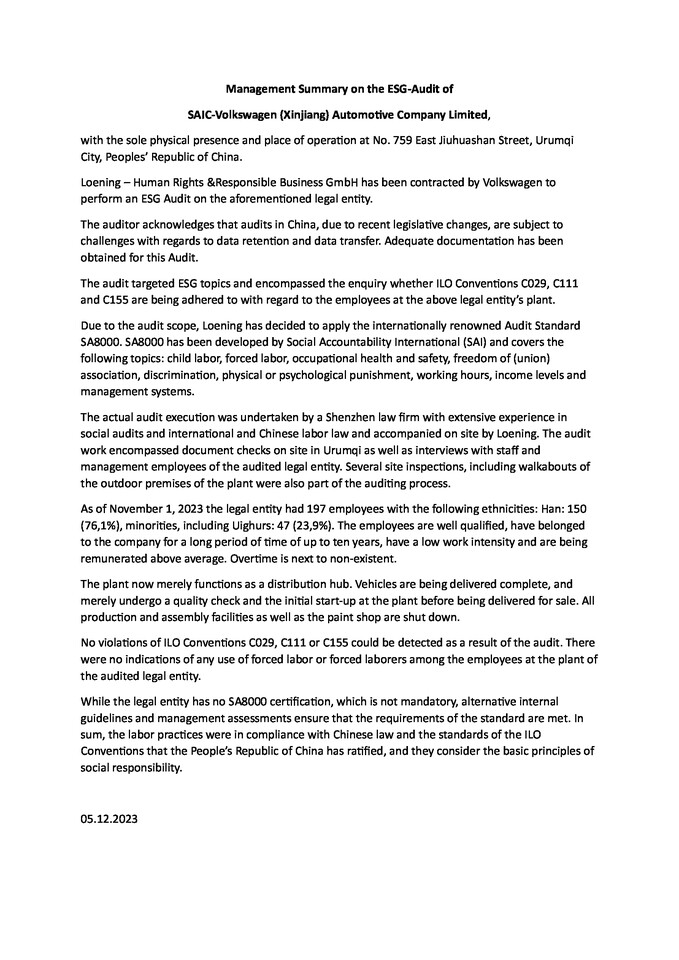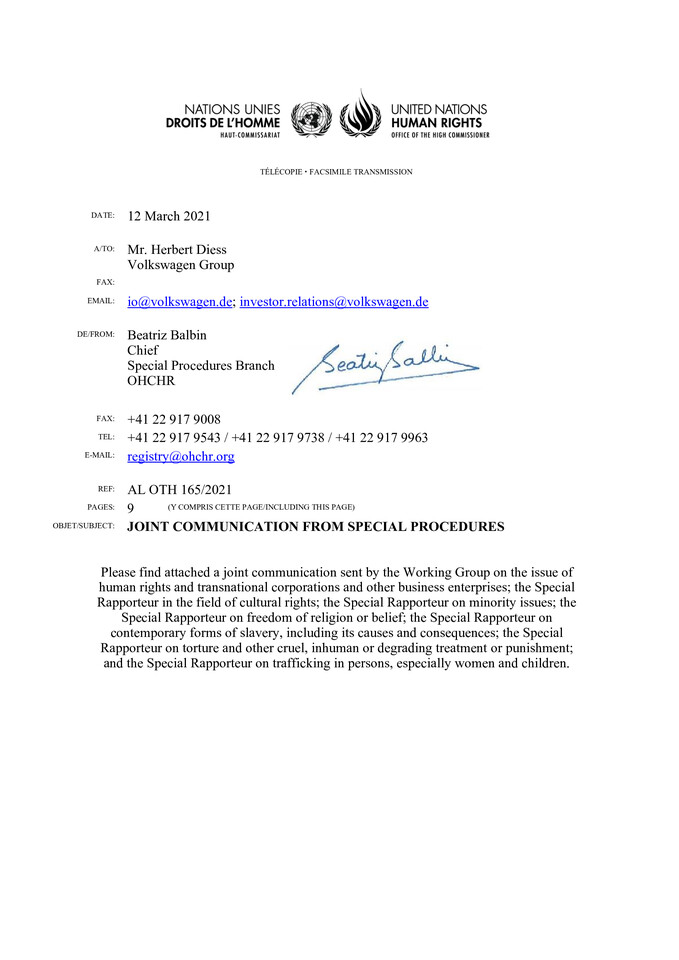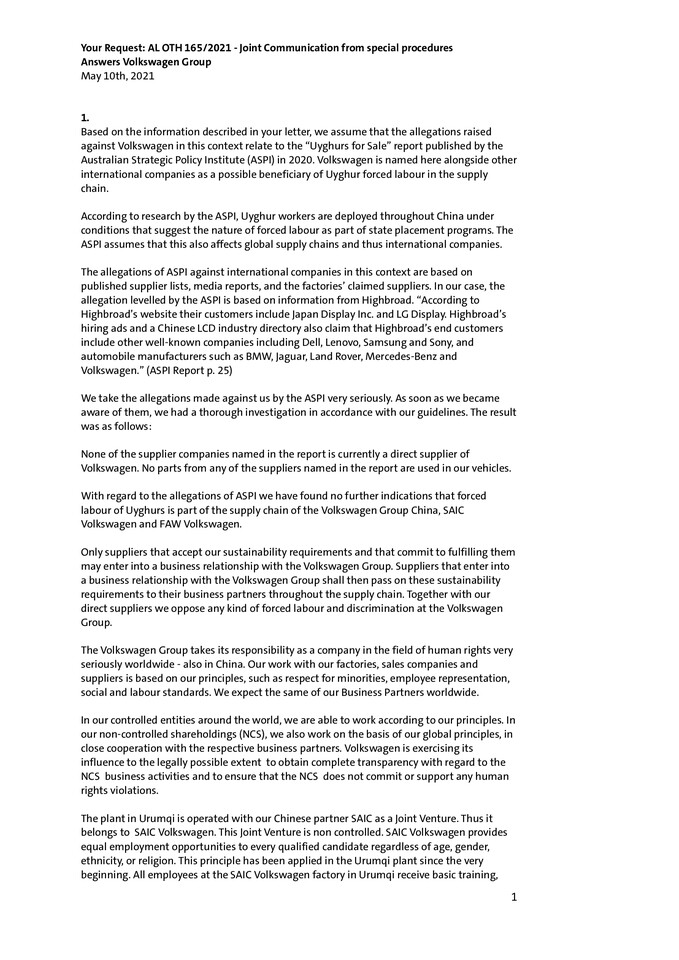Status 19. March 2024
ESG Controversies
Volkswagen AG is in full transformation mode, pushing forward on our strategy with full force.
Parallel to the transformation of our industry we are seeing the rising importance of ESG in investment decisions, which no one will argue has become mainstream and will continue to grow at a rapid pace.
The importance of ESG is also growing continuously within our organization and is fully embedded in our decision making processes. We believe we have made significant progress amongst others in the areas stated below.
Nevertheless we are fully aware that much more needs to be done.
We have learned that the area of controversies is a reoccurring concern.
This website addresses relevant current and ongoing controversies in a factual manner with the aim of increasing transparency for you our stakeholders.
We invite you to browse this content, welcome any feedback from your side, also on suggestions of further topics that require clarity, and we look forward to our increased dialogue.
Contact
Please feel free to send a mail to investor.relations@volkswagen.de or contact the following persons, who are responsible for ESG within the IR Team:



Human Rights
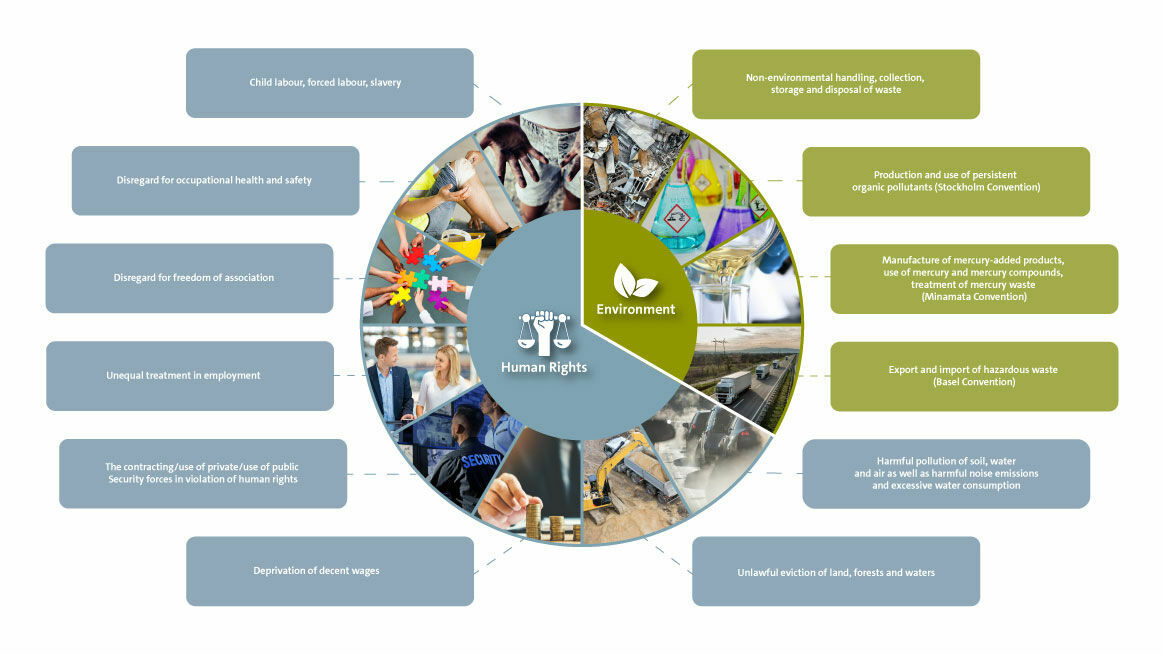
The Volkswagen Group stands firmly against forced and child labor in connection with its business activities. The company takes its responsibility for human rights very seriously in all regions of the world, including China, adhering closely to the UN Guiding Principles on Business and Human Rights. These principles form part of the company’s Code of Conduct. We maintain these values throughout our supply chain and have zero tolerance for any exceptions to this policy.
While in Chinese Joint Venture facilities the Joint Venture is responsible for all employee welfare, all partners agree that basic values and legal rights must be respected and protected. Ensuring good working conditions for all employees is of top priority.
Volkswagen and its partner SAIC are also in full agreement that human rights violations will not be tolerated in the Urumqi plant, which is operated by a subsidiary of the joint venture SAIC Volkswagen.
In February 2023, Volkswagen China’s CEO Ralf Brandstätter, also a member of the Supervisory Board of the SAIC Volkswagen joint venture, visited the Urumqi plant to gain a first-hand impression of the plant and meet employees. Of the 238 employees at the plant, 41 ( 17 percent) belong to the Uyghur ethnic group. There is no indication of any human rights violations or wider issues around working conditions at SAIC Volkswagen (Xinjiang) Automotive Co. Ltd.
The MSCI ESG report, which contains allegations of human rights violations in Xinjiang, is factually incorrect and wholly misleading. Volkswagen is actively addressing this issue with MSCI.
An ESG Audit has been performed by Loening – Human Rights & Responsible Business GmbH and adequate documentation has been obtained. The audit targeted ESG topics and encompassed the enquiry whether ILO Conventions C029, C111 and C155 are being adhered to with regard to the employees at the Urumqi plant. Due to the audit scope, Loening has decided to apply the internationally renowned Audit Standard SA8000. The actual audit execution was undertaken by a Shenzhen law firm with extensive experience in social audits and international and Chinese labor law, and accompanied on site by Loening.
As of November 1, 2023 the legal entity had 197 employees with the following ethnicities: Han: 150 (76,1%), minorities, including Uighurs: 47 (23,9%). The employees are well qualified, have belonged to the company for a long period of time of up to ten years, have a low work intensity and are being remunerated above average. Overtime is next to non-existent.
No violations of ILO Conventions C029, C111 or C155 could be detected as a result of the audit. There were no indications of any use of forced labor or forced laborers among the employees at the plant of the audited legal entity.
Our joint ventures have an own Code of Conduct, a whistleblower and an external ombudsmen system to prevent or detect possible wrong doings or violations.
Volkswagen has built a long history with China and will remain firmly committed to its presence in China.
On December 11, 2023, MSCI ESG Research raised the assessment of the Volkswagen AG from Red Flag (Score 0) to Orange Flag (Score 1) to reflect the recent completion of the ESG Audit of SAIC-Volkswagen (Xinjiang) Automotive Company Limited in Urumqi/China. The “Global Compact Status” was upgraded from “Fail” to “Watch List”.
Link to the Website: "Menschenrechte im Volkswagen Konzern"Statements
United Nations Human Rights Special Procedures: Communication with the “Working Group on the issue of human rights and transnational corporations and other business enterprises":
Integrity
With Together4Integrity (T4I), we have pursued a common goal in the Volkswagen Group since its launch in 2018: the implementation of our holistic and comprehensive integrity and compliance management system.
- Thanks to the high level of commitment of all those involved in the Group functions, brands and companies, we successfully rolled out the T4I program and had progressed significantly more at the beginning of the 2023 reporting year than originally planned at the start of the program. This is also evident by steadily rising approval ratings regarding the question of integrity in the annual Group-wide employee survey (Stimmungsbarometer).
- Due to the great progress made in the roll-out and the high degree of maturity in the implementation, we gradually returned the further consolidation of T4I activities to the line during the course of the 2023 reporting year, thereby ending the central program control. This means that the Group brands and companies as well as the responsible Group departments are responsible for the continued implementation and sustainable anchoring of the measures.
We are pleased that they are driving forward the continued implementation and sustainable anchoring of the measures.
Supply Chain / Sustainable Procurement, Code of Conduct
Volkswagen is convinced that a sustainable supplier network guarantees long term business success. All suppliers must accept the code of conduct which has been published under www.vwgroupsupply.com. The code of conduct defines legally compliant, sustainable and responsible business behavior under environmental, social and ethical aspects. Compliance with the code of conduct is evaluated by us for every relevant supplier on the basis of self-assessment questionnaires as well as possible local on site inspections. The sustainability index is directly relevant for the contract award: when a supplier does not meet our requirement for sustainability compliance standards, they are not entitled to a contract award. Therefore, there is a direct incentive for all suppliers to improve their sustainability performance.
Supply Chain / Leather
The brands of the Volkswagen Group have joined the Leather Working Group (LWG) on April 14 2023. The Group seeks to play a leading role in the auto industry in terms of responsible raw material procurement, and becoming a member of LWG is a further milestone on the way to achieving greater sustainability throughout the entire value chain.
Link to Press Release: Volkswagen is committed to more sustainable leather sourcing 14.04.2023
It can be excluded that the Volkswagen Group together with all its brands is sourcing or has ever sourced leather from Paraguay.
All our leather suppliers are working at a high level of sustainability. The general sustainability requirements of the Volkswagen Code of Conduct, which apply to all suppliers, are currently being adapted to leather. In order to improve the sustainability in the supply chain, we are currently working on leather specific mandatory requirement document for sustainable purchasing. This list has a mandatory leather specific external audit , the disclosure of the sub-suppliers of the vendors as well as the exclusion of leather and other primary material related to illegal deforestation. Volkswagen is therefore proactively improving
transparency and responsibility in the leather supply chain.
Volkswagen is convinced that a sustainable supplier network guarantees long term business success. All suppliers must accept the code of conduct which has been published under www.vwgroupsupply.com. The code of conduct defines legally compliant, sustainable and responsible business behavior under environmental, social and ethical aspects. Compliance with the code of conduct is evaluated by us for every relevant supplier on the basis of self-assessment questionnaires as well as possible local on site inspections. The sustainability index is directly relevant for the contract award: when a supplier does not meet our requirement for sustainability compliance standards, they are not entitled to a contract award. Therefore, there is a direct incentive for all suppliers to improve their sustainability performance.
Volkswagen Chattanooga (21.12.2021)
No matters involving Volkswagen Chattanooga are currently pending before the National Labor Relations Board (NLRB)
The UAW revoked its prior certification of a maintenance unit, filed for an election for both production and maintenance employees, and an election took place on June 12, 13, and 14, 2019. The employees voted against UAW representation, the UAW did not file any objections to the election.






